May 2022
The purpose of the newsletter is to reach out to the present and the potential members of our MOVE (Membership of Value Engagement) program and help them make informed decisions. Know more about our MOVE membership program click here.

We create a platform for the industry to gain more insights into the emerging trends, industry specific problems of national importance and global best practices in logistics & supply chain management. We enable the industry to cut down the transaction cost, increase efficiency, and enhance profitability and enable to sensitize and bring solutions to macro level issues.
Our Selection of the Latest Trends, Events, and Happenings from the World of Supply Chain & Logistics
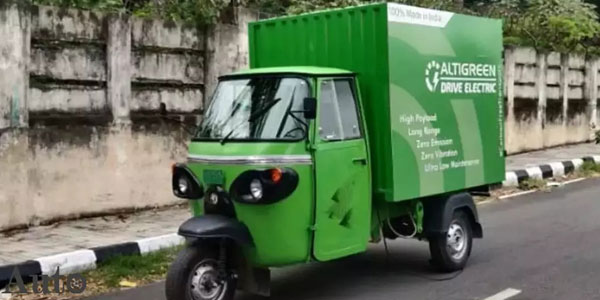
|
|
Sustainability in supply chain has stayed among the top priorities of organizations. Dabur India has announced plans to induct 100 EVs in its supply chain for last-mile distribution. This will take it closer to achieving "carbon neutrality" in its operations, said the FMCG major.Mahindra Logistics, a leading Third-Party Logistics (3PL) solution provider, has announced the buying of a majority stake in ZipZap Logistics Private Limited, a last-mile logistics service provider. This move will complement Mahindra Logistics' last mile delivery business and its Electric Vehicle (EV) based delivery services, as per a media report.
|

|
|
The other significant development has been the emergence of newer supply chain risks brought about by the recent geopolitical crises. The Economic Times reported that India's corporate organizations plan to revisit supply chain models in the face of disruptions caused by the ongoing war and China's lockdown restrictions. Industry leaders say that the ongoing crises have hit supply chains and the industry is rejigging organizational risk models. Companies are forced to look at alternative destinations for sourcing as a result.
|
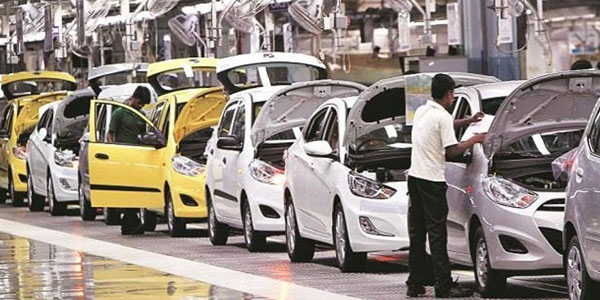
|
|
Business Standard reports that auto component firms have been feeling the impact of the ongoing chip crisis and raw material shortage. This has impacted the makers of passenger cars, two-wheeler, tractor and CV makers and has in extension effected the autopart makers.
|

|
|
Technology has acquired a greater significance in light of the recent challenges. Analytics India Magazine makes the case that Genetic Algorithms (GA), a special set of evolutionary algorithms, could help to solve the complexity of SCM (Supply Chain Management). Eaton, the Irish-American power management solutions company has announced the opening of a digital incubation laboratory in Pune which, the company said, will further enhance its supply chain operations.
|

|
| Shiprocket, an Indian logistics software solutions company, launched a solution for cross- with Shiprocket X.The company said that its offering will allow businesses to expand internationally and ship orders across over 220 countries via multiple carriers.
|

|
|
Mumbai-based National Institute of Industrial Engineering (NITIE), one of India's most prestigious management schools, has launched the Global Online Certification Course on 'Modelling and Building Digital Supply Chain Twins. This is to train students in digital twin technology, one of the fastest-growing solutions in industry 4.0, which has gained momentum in recent years.
|

|
|
The positive approach of the government and the industry is boosting industry sentiment. HCL co-founder AjaiChowdhry has said that India's manufacturing push supported by encouraging policiesis timely. This positions the industry to avail a massive opportunity in the electronics hardware space amid the recent supply chain disruptions. Mr. Chowdhary, part of an IT ministry-constituted advisory panel expressed confidence that India can emerge as a "reliable partner" for the world.
|
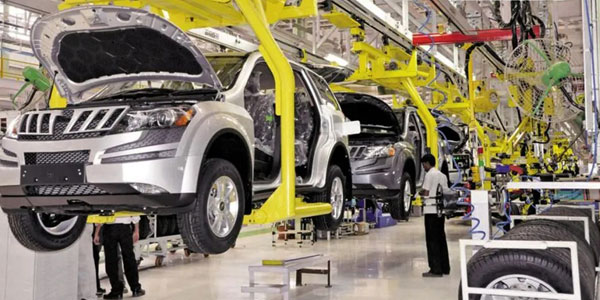
|
|
The automotive industry has performed well the year ending March 2022. Car sales increased this fiscal year say carmakers. Maruti Suzuki reported a rise of 13 percent in FY2022 when sales grew for the first time in two years. The company, however, cautioned that the supply of electronic components remained unpredictable.
|

|
|
The warehousing and logistics sector saw institutional investment of USD 1.09 billion in 2021, accounting for the second highest investment quantum during the year, reported The Hindu. The sector's growth surpasses performance of other real estate asset classes, said the paper.
|

|
|
The Goa government intends to bring about a dedicated logistics policy to promote the logistics sector and enable creation of warehouses.
|
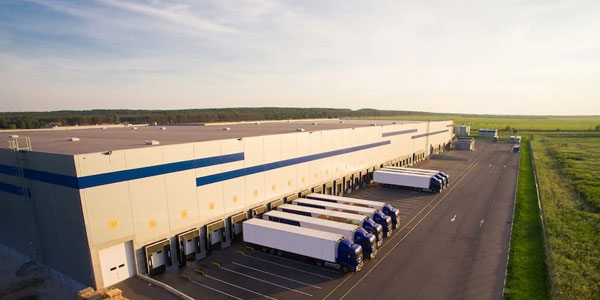
|
|
With an increase in demand for large warehouses, developers see opportunity in small town Bengal, reported Mint. The warehousing sector boom has opened up more job opportunities. Industry body CII expects the investments from the Hiranandani Group, alone, to generate over 20,000 direct and indirect jobs in Bengal, said the financial daily.
|
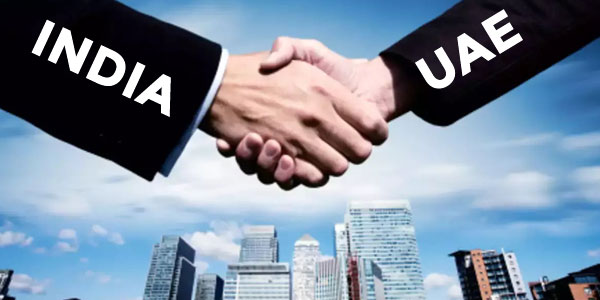
|
|
The Comprehensive Economic Partnership Agreement (CEPA), inked by the UAE and India, will help lower logistics costs of trade between the two countries. The agreement will be operational within a month, said UAE officials while speaking at the close of the third edition of the LOGIX India event in Dubai, supported by the UAE's National Association of Freight and Logistics (NAFL).
|

|
|
A healthy growth in supply chain finance (SCF) will bring rural India into the mainstream economy, said a TOI report. It noted the Micro Small and Medium Enterprises (MSMEs) and agriculture as the two major pillars of the Indian economy.
|

|
|
The sector has been reporting a healthy trend in investments both by the established and the new players. The World Bank Group's International Financial Corporation (IFC) has proposed an investment of $100 million (Rs 726 crore) in Warburg Pincus-backed logistics platform ESR India Investment Holdings Private Limited (ESR India). The proposed investment will help ESR India to develop and operate warehousing and industrial properties in the country.
|
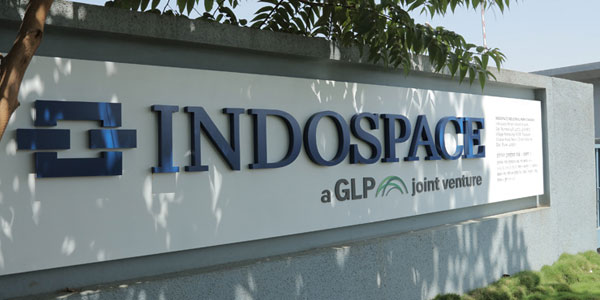
|
|
The industrial park and warehouse developer IndoSpace has increased its western India footprint with setting up of two logistics parks in Gujarat.
|
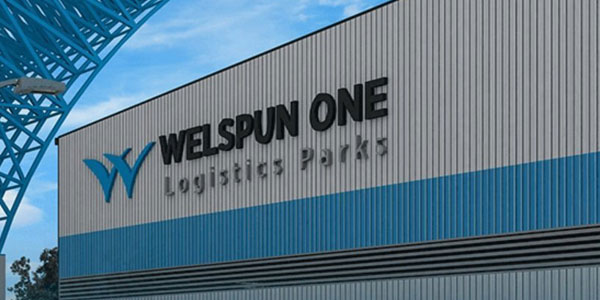
|
|
Welspun Logistics Parks handed over 3.7L sq ft warehousing facility to FM Logistic, providing the latter access to features such as circulation and traffic planning to ensure smooth movement of trucks and pedestrians, and solar-enabled systems.
|
INTERNATIONAL NEWS

|
|
News and concerns of supply chain challenges brought about by the pandemic-induced shortages and the ongoing geopolitical crises stayed prominent in the global media. Freight truck challenges could transform the world of logistics, said a Forbes article. Driver shortage and other challenges faced by shippers could give rise to the more transitional approaches in the global freight transport industry. That is why logistics experts are following the autonomous freight truck market and newer approaches to freight procurement closely, said the report.Cost and infrastructure are two major impediments in the way of a widespread adoption of e-truck use, reports Supply Chain Digital. This, despite the fact that the move to net zero carbon emissions is a global issue, and sustainability is a top priority in every boardroom.
|

|
|
Gillian Tett of Financial Times says that the various supply chain crises could force corporate America into a 'what if' mindset. He said that the corporate boards are considering "once-unimaginable tail risks and repositioning."
|
|
|
|
The makers of machines and machine tools that keep the semiconductor supply chain going are facing issues because of the high demand and a lagging production. ASM International,a company that supplies gear needed to make semiconductors, in an interview with Nikkei Asia, said that it is having trouble finding enough chips itself. Similar issues are being reported by other manufacturers in the supply chain. Fellow Dutch firm ASML, which makes lithography machines for chipmakers, has also warned of similar problems.
|

|
|
The New York Times traces the journey of a shipping container from a Chinese factory to a warehouse in Mississippi, the United States in telling the story of how troubled the global supply chain is. A riveting read.
|

|
|
Robert Garrison, a member of the Forbes Council, lists five 'Dragons' to watch out for in the new supply chain environment. Sales; Operating Inefficiencies; and Employee Satisfaction and other important areas are critical to supply chain organizations for growth and survival, he writes.
|

|
|
An industry analysis says that sustainability strategies meant to promote circular economy models, responsible waste management, and preserve natural capital can help ease supply chain shortages in the mid to long term.
|
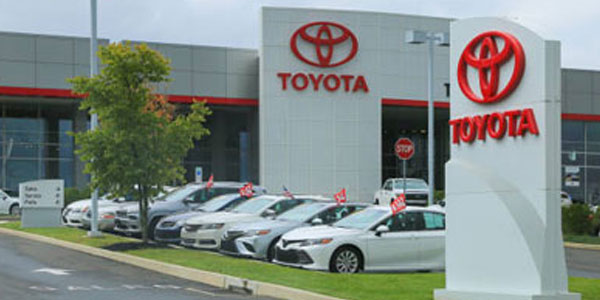
|
|
Major automakers like Toyota Motor grapple with supply chain woes like rising raw material prices due to the ongoing geopolitical turmoil, reports Nikkei Asia.
|

|
|
Gartner says that chief supply chain officers need to adopt strategies to conserve resources. This is to address inflationary pressures and supply shortages.
|

|
|
Harvard Business Review echoed the prevailing global sentiment regarding supply chain disruptions and posited that supply chain risks are beginning to outweigh rewards. "As companies rethink sourcing, they will have to consider new factors concerning geography and geopolitics, logistics, decarbonization and sustainability, and suppliers' health," the article said.
|
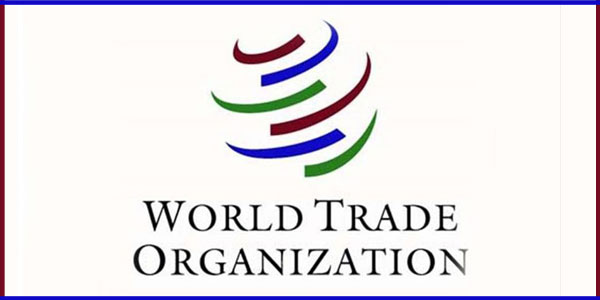
|
|
The director general of the World Trade Organization has urged a deeper global trade that could in turn help organizations address supply chain disruptions. Ngozi Okonjo-Iweala, the WTO chief, said getting more countries into international manufacturing networks could make supply chains more resilient. Speaking of resilience, Forbes has suggested four ways to create a more resilient supply chain. These include connectivity and sustainability. Read the article for more.
|

|
|
Acquisitions and mergers in the sector also dominated the business news globally. The German engineering and technology company Bosch and U.S.-based cloud provider Amazon Web Services (AWS) together plan to offer logistics companies and freight forwarders easy access to digital services through a platform powered by AWS. The two companies have entered into a strategic collaboration to offer support for areas ranging from capacity utilization of commercial vehicle fleets to monitoring goods flows to order processing.
|
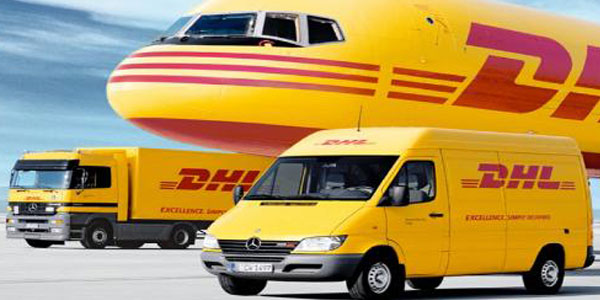
|
|
DHL Supply Chain underlined five emerging technologies that will accelerating supply chain Digitalization in 2022. These include Indoor Robotic Transport, Wearable Devices, Data Analytics, and two others. Here's the full article.
|

|
|
The French container corporation and shipping company CMA CGM acquired nearly 100 percent automotive logistics provider Gefco. Headquartered in France, Gefco, state-run Russian Railways, is understood to have been impacted by western sanctions against Russia
|
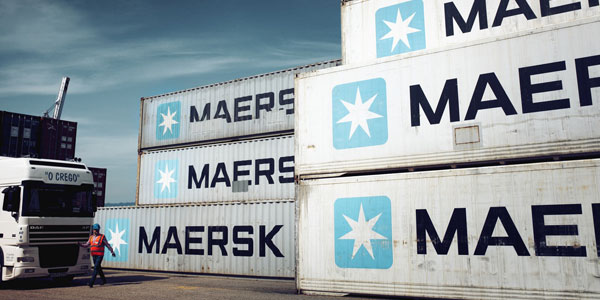
|
|
A.P. Moller-Maersk has joined hands with the World Business Council with an aim to decarbonise logistics. The initiative involves the latter'sSustainable Development (WBCSD), a Smart Freight Centre and the participation of 25 global companies to develop an actionable guidance for working towards a net-zero logistics.
|
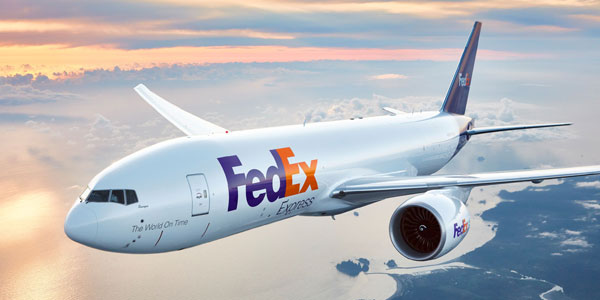
|
|
FedEx Express has said that it will test middle-mile drone delivery through a partnership with Elroy Air, the operator of the hybrid-electric vertical take-off and landing (VTOL) aircraft Chaparral.The goal is to improve operational productivity, efficiency and safety, said the delivery behemoth.
|

|
|
GEODIS has signed an agreement to acquire Keppel Logistics with the objective of increasing the former's contract logistics footprint and e-commerce fulfillment services in Singapore and SEA.Panasonic Holdings Corp. will invest $4.9 billion in automotive batteries, supply chain software and other growth areas, said the company. Some growth segments include EV cells, and hydrogen devices. That's all for this month from our newsletter.
|
|
Interview of the Month
Visibility, Flexibility, Collaboration & Control Four Pillars of Supply-Chain Resilience |
|
|
The biggest lesson learned from the pandemic was that an excessive dependence on one supplier, location or geography is to be avoided. Multiple sourcing options and delivery models is the way to go. These and other insights from an engaging conversation with Mr. Mr. R Dinesh, Executive Vice Chairman - TVS SCS and Chairman, CII Institute of Logistics.
|
|

|
Mr. R Dinesh, Executive Vice Chairman - TVS SCS and Chairman, CII Institute of Logistics shared insights with us on a range of important issues, from India's importance as a logistics and sourcing hub, the biggest challenges that the industry will need to address, the changing global supply-chain landscape, and TVS SCS' own journey and focus areas. Edited excerpts.
|
| When TVS SCS took shape (as TVS Logistics)in the mid-nineties, logistics and supply chain as value propositions were relatively unknown outside inner business and academic circles. The historical trend that helped these areas take off was the eighties' liberalization policies embraced by major economies, which paved way for globalization, and outsourcing. Over the last two decades, however, the business of logistics has undergone a lot of changes. Today, for instance, enterprises want a greater control over their operations. Large global organizations are talking about regionalization and near-sourcing. Organizations are switching from physical ways to digital ways. The question is, in what significant ways the business of logistics has changed in the last two decades-particularly in the last few tumultuous years? |
|
The Indian logistics market is largely fragmented and has been experiencing significant growth in the recent years. The Indian Logistics market has grown at a CAGR of ~6% between 2018 and 2020, and expected to grow at a CAGR of 7% between 2020 and 2025. The American market and Chinese logistics markets are expected to grow by a CAGR of 6% and 3% respectively in the same time-frame. The logistics industry is undergoing a tremendous shift, customers have begun to treat supply chain and logistics not only as a cost-centre but also as a differentiator. Reports show that the industries are increasingly considering supply chain as a structural moat and are looking to partner with solution providers to build customized and integrated service offerings for long term capabilities. Trends show that industry players are looking for solution providers who can be one-stop shop partners providing end-to-end integrated services, new-age tech enabled processes, and agile service partners who can customize service offerings to fit new business models. Ecommerce& Omni channel Retail, especially during the pandemic years has seen a rapid growth that has changed consumer desires and the expectations on transportation and warehousing services. Successful transportation and warehousing providers are flexible and quickly adapt to this new trend. Industry players' expectations of these service partners are not just on low-cost solutions, but also visibility of operations, inventory optimization & analytics, and strong cross-border network and last mile. Outsourcing in Supply Chain was relatively unknown in the mid-90s. A few developed markets like UK/Europe and US were willing to outsource both in After Market Supply Chain and Production Supply Chain. The Auto sector was taking the lead at that time but things have changed dramatically over the last few years. After disruptions in supply chain due to the pandemic several organizations are investing in risk mitigation plans to bebetter positioned during unforeseen circumstances in the future. While evaluating flexible sourcing arrangements with multiple suppliers, efficiencies and adoption of lean methodologies are areas of focus to keep costs low and productivity high. This demands entire supply chains to be sustainable and this includes having efficient network design, consolidated sourcing, manufacturing, storage and optimal distribution practices. 'Resilient supply chain' supported by the 4 key pillars - Visibility, Flexibility, Collaboration & Control with the foundation of governance enabled by people, processes & IT framework are key. |
| When writing about the remarkable growth record of TVS SCS, sector observers point out a few strategies that stand out - company's focus on building end-to-end capabilities, a host of strategic timely acquisitions that have paid-off handsomely and have given access to niche capabilities, preference for keeping the business asset-light where warehouses and vehicles are operated on leases with network partners and its sharp customer focus. Could you give our readers an insight into some of your top success strategies that have consistently helped deliver results? |
|
TVS SCS pursued the vision of being an Indian MNC initially through JVs and later through key acquisitions. The focus was mainly to acquire capabilities from the developed markets and deploy them in the developing markets. But it also added to our geographic presence and the subsequent growth of these companies (in double digits) added to the financial growth of TVS SCS. The initial strategy was to acquire unique capabilities which have been brought together to build an end-to-end services portfolio. TVS SCS started with a focus on Auto Supply Chain but has now diversified using these capabilities across multiple sectors to Industrial Engineering, Technology and Tech-Infrastructure, Consumer Durables, Retail, Defense etc. Today, we have cross-deployed capabilities across multiple geographies and have built strong customer relationships which has enabled us to take these partnerships across geographies. We are a tech-led profitable growth Supply Chain Company. From way back in 2008, we have believed that technology is our differentiator, which will bring our capabilities and the network we have built in relevant geographies, together. In order to maximize on the capabilities acquired, the focus remained on the cross deployment of capabilities. TVS SCS has successfully cross-deployed capabilities and have standardized best practices to offer a strong portfolio of tech-enabled warehousing and transportation services globally. Today TVS SCS has presence across 25 countries and serving 61 fortune global 500 customers. Our value proposition has strengthened with strong process framework, trained manpower and integrated IT systems. Digital strategies have become core to Indian Logistics industry in recent years and TVS SCS has been one of amongst the top solution providers leading in successful deployment of customized tech-enabled solutions. |
| In your interactions with media, you have spoken about how the Indian logistics industry is rightly positioned to become a sourcing hub for parts, not just for the automotive industry, but also other fast-growing sectors like electronics and capital goods. Could you please elaborate on this vision and share with us the factors that you feel could help us reach this goal? |
|
India is poised to emerge as a strong global manufacturing hub owing to favourable policies and incentives enabling the establishment of the right infrastructure, and evolving global market trends giving India an advantage. Manufacturing contribution to India's GDP accounted for 14.4% in Fiscal 2021, and is expected to grow upwards of 20% in the next 5 years. The Government of India (GoI) has put into motion several policies that will bolster this such as Make in India with the goal to increase the manufacturing sector growth rate by 12-14% per annum, and the introduction of Production Linked Incentives (PLI), for several sectors including automotive and auto-components, semiconductors and electronics, and other consumer goods. Given India is emerging as a leading manufacturing hub, it becomes incumbent on supply chain solution providers like TVS SCS to build a strong network and efficient capabilities to support the growing manufacturing sector. This will go hand-in-hand with the after-market services to support India to also become a regional hub for parts distribution to the nearby markets. There will be an increase in warehousing needs and visibility for all global stakeholders enabled by integration of digital solutions. Tech-driven supply chain solution providers will be successful players to fill this gap. Using the regional hub philosophy, it becomes our responsibility to build an integrated market for free-trade warehousing zones, express air cargo and global freight forwarding to support manufacturing in India and service relevant markets in the world. |
| Globally, the business of end-to-end logistics services is set to grow even bigger. It's attracting marquee brands like the shipping major Maersk which is on an acquisition spree across the supply chain spectrum and is forming strategic tie-ups with consumer majors like Unilever. Similarly, Amazon has firmed up its logistics business particularly during the pandemic years and it is continuously expanding presence in Tier I, II & III cities. The fast growth of TVS SCS with its major international presence - the company has operations across 25 countries and in recent years its global revenue accounted for more than 70 percent - puts it in competition with large global players. How do you see the organization navigating this fast-growing business while contending with the growing competition from large powerful players? |
|
There are 2 - 3 major evolutions taking place in Supply Chain : One is on the B2C side, where many of the e-commerce players have been focusing on and excelling in. We also see a trend of the shipping companies offering value added services and building end-to-end relationships with customers. The third and most interesting change for companies like TVS SCS is that many companies are wanting to outsource an integrated supply chain solution to enable better visibility and cost optimization across the Supply Chain and not in one segment alone. To give some context, the non-e-commerce Supply Chain sector is expected to grow from USD 6 Bn to USD 19Bn in India alone in the next four years, which is a CAGR of 26%. Similarly, in the global market, it is expected to grow at a CAGR of 10.2% As explained earlier, TVS SCS is a tech-led integrated Supply Chain player which is able to provide flexible and innovative solutions to customers. We also use Artificial Intelligence and Machine Learning to build intelligent and evolving solutions using our experience and the data generated over the past few years. We do not play in the B2C space at all unless it is on behalf of a B2B company. We believe there are significant opportunities available for us to continue to grow without competing head-on with many of the global players. Our unique value proposition of using technology and the deep domain expertise we have acquired and integrated provides us with the opportunity to grow with a strong double digit growth rate in the years ahead. |
| In India, in what ways do you see customer organizations in sectors like automotive, electronics, capital goods, pharma and ecommerce benefitting from the fast growth of logistics and warehousing services, particularly the ongoing activity in the sector that has risen up to serve the post-pandemic recovery and the pent-up demand? |
|
The need of the hour is for integrated solutions in Transportation and Warehousing Services. The various sectors including automotive, electronics, capital goods, pharmaceuticals and e-commerce need the support of players who are ready to invest upfront in solutions and technology. The challenges of managing global supply chain solutions will lead to India and Indian companies, whether large or SMEs seeing Supply Chain as a core element of their business management. Post pandemic, we are seeing significant interest in companies trusting logistics companies with value added end-to-end contracts, and we are seeing this as an increasing trend going forward. |
| Skill-building is an area that is said to be close to your heart. This is evident from the emphasis TVS SCS puts on skill development for its employees, and your association with the CII Institute of Logistics (CII IL) as Chairman. Can you share with your perspective on the importance of skill development in logistics, the contribution of CII IL in advancing it, and the future initiatives of CII IL that could help strengthen it further? |
|
With changing demand and disruptions, job roles and skill sets required are also evolving. To be resilient in the long term, companies must invest in their employees and embrace the changes happening in the industry. Empowering employees with the right skill set and continual improvement of knowledge keeping in mind industry trends, builds a workforce prepared for future unforeseen challenges, improves scope for innovation within the company and creates a more conducive environment for new-tech adoption while also increasing employee satisfaction. The key here is to focus on building people-capabilities at all levels. This includes executive level employees, senior management, middle management and our ground staff and workforce. Organizations must invest in training and certifications for their employees to build new skill sets, improve their knowledge and build on existing capabilities. This builds an agile workforce that are flexible to changing business needs and also increases their employability to ensure productivity from day one. A collaborative approach is needed amongst Industries, Educational institutions and Private players driving short and long term initiatives. Companies must work with educational institutions to run apprenticeship programs, workshops and courses relevant to their domain to build a ready-to-deploy workforce. CII-IL has taken the lead on this and have facilitated forum sand several structured initiatives to bring key stakeholders together to enhance industry knowledge. CII-IL's education and skill-building initiatives are well recognized within the industry and many future young leaders stand to benefit from the opportunities provided. TVS SCS has always valued association with CII and have a long-standing collaborative relationship through several initiatives around skill development. |
| Digital transformation is known to be another important focus area for TVS SCS. The company has been among the pioneers in India known to have provided digital solutions like Control Tower, digital procurement, and integrated vision technology applications. What are the main objectives of positioning the company as a digital-first supply chain solutions providers, and how important is digitalization of supply chain services for customers and the sector in the new normal? |
|
In the last 20 years, supply chain has evolved drastically. Tiering has become the norm wherein product manufacturers outsource parts from suppliers who in turn outsource manufacturing of part to another tiers of suppliers and so on. This increases the need for visibility of movement of goods between these tiers and digitization has to take the lead. Digital transformation to aid this brings in several internal and external benefits. Tech-enabled processes ensures mistake-proofing of end deliverables using tools that are enabled by artificial intelligence and machine learning. For example vision technology and AI-based tools are employed in identifying defects in the assembly line allowing for intervention and reducing service delivery failures to zero. Tech-based processes and systems allow companies like TVS SCS the flexibility to scale-up quickly within a customer and across multiple customers. This flexibility also allows tweaking of features to fit customers' requirement. Since the trend is going towards more cloud-based platforms the scale-up and deployment of tech-process across multiple regions is made easy. India has also seen a tremendous growth in the start-up ecosystem both in tech and logistics sector. Service partners like us look to partner with such innovative start-ups to bring in best-in-class practices to the industry. |
|
Founding Members
|
|

|

|

|

|

|
|
Will connect again next month, with a comprehensive dossier of news, trends and events from the industry.

|
Courtesy: Newsletter content developed by Mr. Aanand Pandey | |